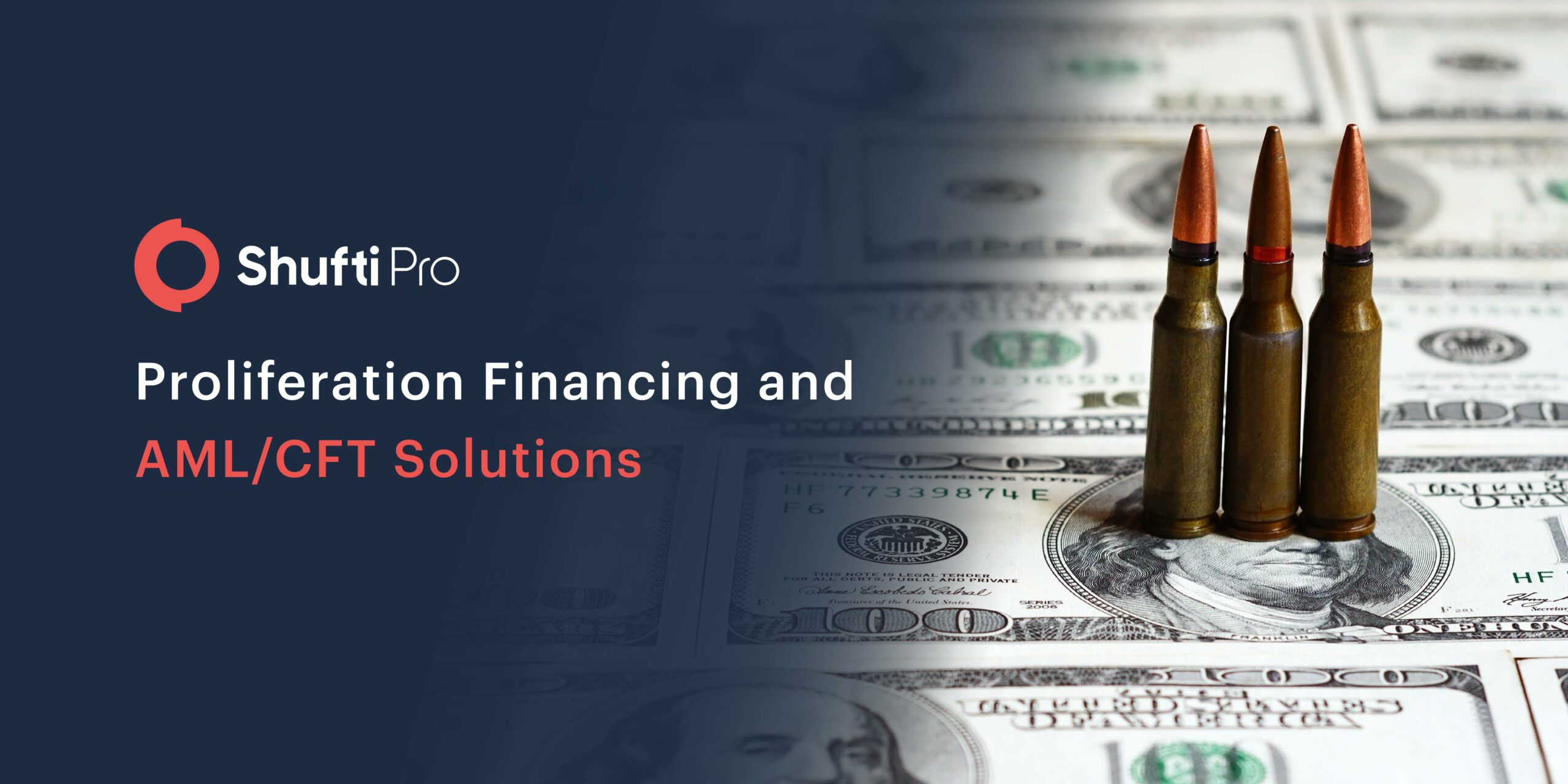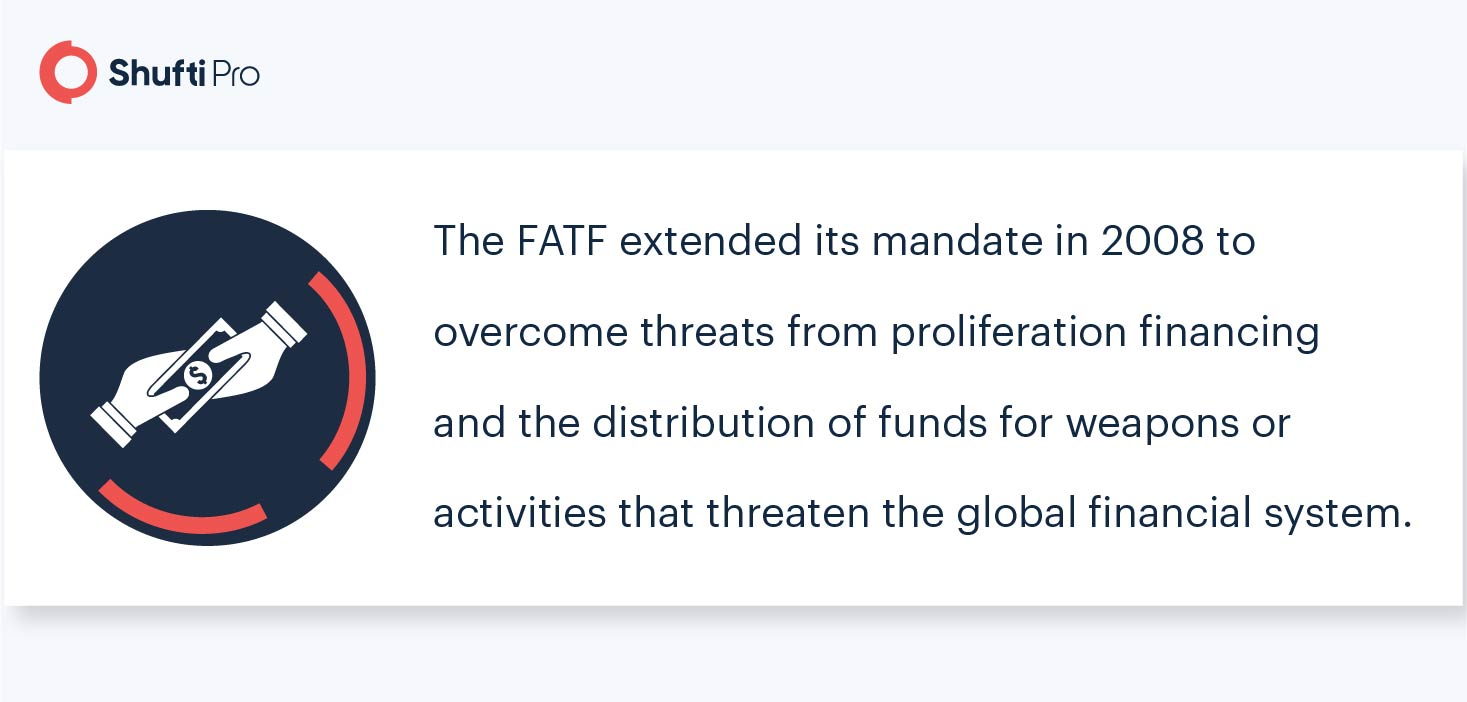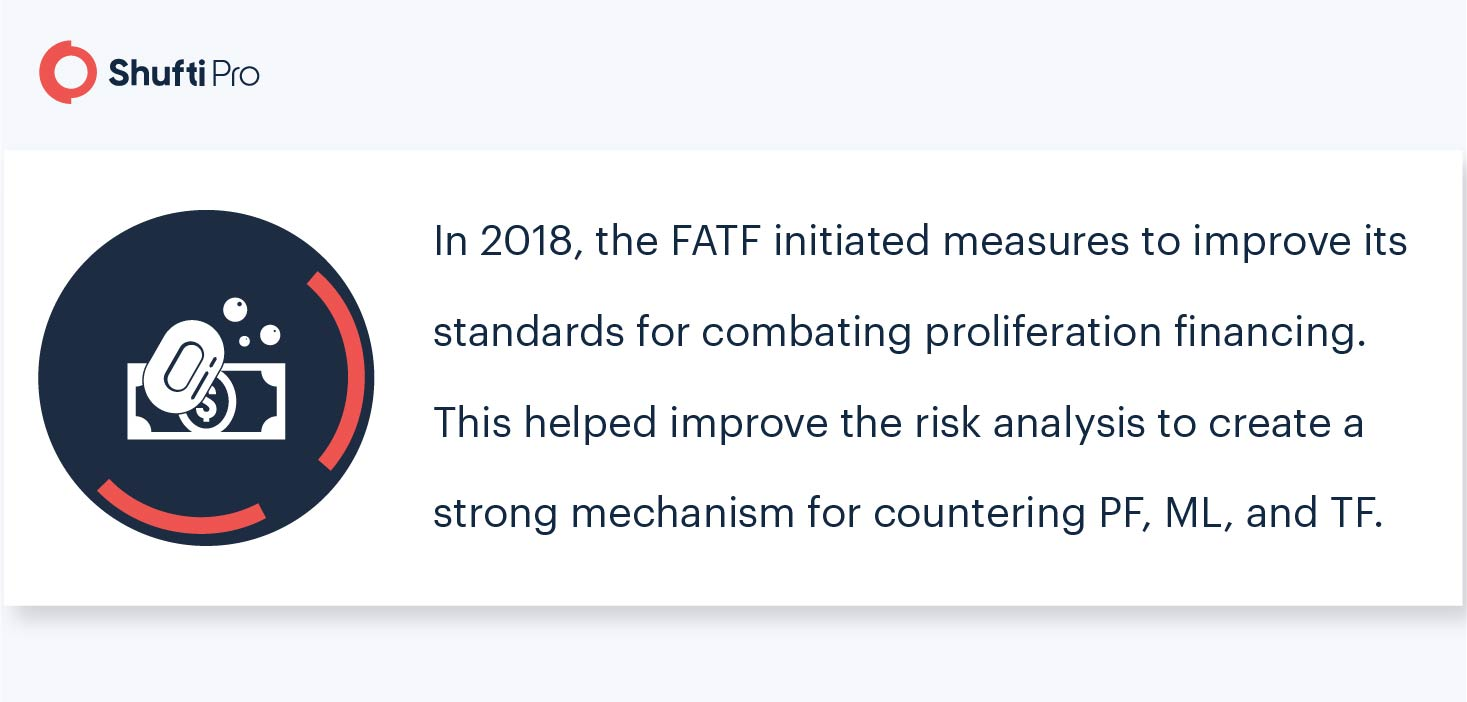Overcoming the Challenges of Proliferation Financing with AML Screening Solutions

On September 23rd, the 2021 UK NRA (National Risk Assessment) was published as part of the government’s commitment to the Economic Crime Plan of 2019. Risks associated with proliferation financing, including the acquisition of nuclear technology and other such activities that are potential threats to national security are addressed in this publication.
Since the UK is a predominant global financial hub thanks to its impartiality towards investments and trading, the susceptibility to financial crimes like proliferation financing does not come as a surprise. Perpetrators involved in proliferation financing aim to profit from the UK’s prominent presence in the global financial system in order to fund CBRN (chemical, biological, radiological, and nuclear) programs.
What is Proliferation Financing?
As stated by the FATF, proliferation financing is the term used for illegal procurement, development, export, storage, or transport of CBRN (chemical, biological, radiological, or nuclear) weapons and the use of materials related to them. The proliferation of these weapons threatens global security and adds to the challenges faced by the international financial landscape.
Risks Associated with Proliferation Financing
Proliferation financing directly threatens national security as the bad actors involved in the financing of development and transfer of nuclear weapons become part of the news. The most notable proliferation financing activities that surfaced in recent times were from Korea and Iran. Diving deeper into proliferation financing, it’s clear that the risks related to financial services are largely influenced by the export and transfer of proliferation-prone commodities.
There are several institutions around the globe making efforts for the purpose of observing proliferation financing activities and analyzing the hidden depths. Looking at the bigger picture, the impacts of proliferation financing are seen throughout the global financial system. The UN (United Nations) along with its member states looks to get better insights into the new ways and progression of proliferation financing over time.
The Korean nuclear program is being addressed by the UN’s large-scale sanction measures, including specific schemes for the monitoring of relevant financial and transportation activities. As a result, restrictions are in place to limit North Korea’s access to finances that are potential contributors to CBRN programs. Another sanction scheme of the UN is specifically targeted at Iran’s nuclear and ballistic missile program.
When did FATF extend to Proliferation Financing?
The Financial Action Task Force (FATF) is the global quality center when it comes to implementing regulations for combating proliferation financing, money laundering, and terrorist financing. In 2008, the FATF extended its directive to monitor and prevent activities such as the proliferation of weapons. The UN’s regime pertaining to proliferation financing also complies with the UNSCR’s (UN Security Council Resolutions) requirements.

Additionally, the FATF has also sent out region-specific guidelines for different jurisdictions to make the implementation and compliance processes more convenient. The risk mitigation and multiplication of issues arising from proliferation financing are also addressed by the FATF in its publication of the typologies report. The measures suggested by the FATF are currently restricting and monitoring the potential proliferation of financing activities in Korea and Iran.
Since the FATF reinforced its counter-proliferation financing standards in 2018, UNSCR-specific laws now call for implementation and regular reporting of the measures taken to monitor instances of suspicious fund transfers and their possible usage in the manufacture or procurement of weapons. All financial institutions are required to implement measures in order to comply with AML/CFT regulations. Previously, proliferation financing was considered in a different risk assessment strategy, but the updated standards of 2018 introduced a unified strategy to counter money laundering, terrorist financing, and proliferation financing altogether.

Furthermore, October 2020 saw more updates to Recommendation 1 of the FATF, where the private sector and countries are all required to monitor and mitigate risks originating from proliferation financing. In addition to this, the regulations encourage reporting of non-implementation of measures for counter-proliferation financing, as the failure to monitor such activities makes the region more vulnerable.
The Aim of UK’s Counter-Proliferation Financing Regime
Being prominent in the global arms trade, the UK produces commodities for use in chemical and nuclear processes, making this part of Europe the most vulnerable to proliferation financing risks. This being the case, it’s not tough to guess that the UK is also a globally recognized country for its counter-proliferation financing regimes and is a major entity in the FATF’s efforts for that matter.
As mentioned earlier, the first NRA on proliferation financing is a significant step forward in the UK’s reinforcement of counter-proliferation financing measures. The National Risk Assessment focuses on networks for the acquisition of items of multiple uses in nuclear or chemical weapons, especially in high-risk areas.
Companies are set up to hide networks of proliferation crimes and the UK is one of the prime targets. Risks from the networks of proliferation financing entities are greater in the UK because of the convenience it provides for creating a company, which can then be used as a source to benefit from financial resources. Additionally, TCSPs (trust and company service providers) are also used by these companies to present themselves as reputable organizations and remain anonymous to a great extent.
The UK’s Regulatory Landscape
Considering the aforementioned risks, the UK boasts a tough regulatory framework that can effectively overcome the threats from proliferation financing. In addition to AML compliance guidelines, the primary areas that are supervised include the compliance with UK’s own counter-proliferation regulations as well as the UN’s measures to combat proliferation and chemical weapons manufacture in Korea and Iran.
All companies and individual entities within the UK’s territory are obliged to comply with the FATF’s regulations, and the financial operations involving
UK nationals based in other countries. Counter-proliferation has been among the most significant aspects for the UK as it has been actively working to diminish the funding, procurement, and transfer of proliferation-prone items.
The Integrated Review of 2021 has shed light on the UK’s prominent efforts to combat proliferation financing at the forefront. Not only the illegal funding of such activities within the UK but also the international efforts are monitored and mitigated through the UN’s regulations for counter-proliferation.
Korea
A sovereign sanctions scheme called The Democratic People’s Republic of Korea Sanctions (EU Exit) Regulations 2019 was introduced by the UK, which was aimed at restricting North Korea from operating through unlawful channels and promoting the steps taken towards prevention of proliferation financing. The regime also includes the regulations to dismantle banned Korean weapons, and encourage steps to ensure peace and security.
Iran
For Iran, the UK introduced two schemes that are aimed at different criminal activities in Iran. The first was The Iran Sanctions Nuclear EU Exit Regulations 2019, and the second was The Iran (Sanctions) (Human Rights) (EU Exit) Regulations 2019. These regimes fulfill compliance needs while restricting the development and transportation of nuclear weapons in Iran.
It All Boils Down To…
In addition to the UK updating its policies to counter proliferation financing, AML/CFT solutions are in place for the background screening of all entities involved in financial processes. International concerns are being addressed regarding the necessary actions for preventing proliferation crimes, with the FATF working on reducing the risks.
Shufti offers AI-powered AML solutions and screens identities against 1700+ global watchlists, including PEPs and sanctions. The verification is completed in less than 30 seconds with an accuracy of 98.67%.
Learn more about global AML/CFT screening solutions from the experts!

 Explore Now
Explore Now













